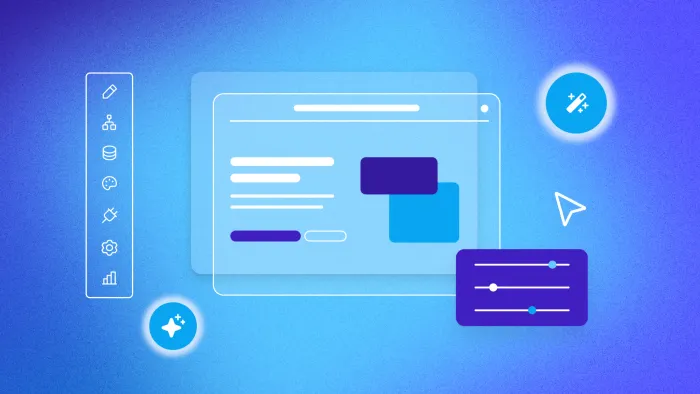Adopting a lean business methodology is crucial for startups and maturing small businesses in today's dynamic, web-based climate driving business. Here we’ll outline the reasons for and advantages of using a lean startup methodology and How to Start a Small Business.
While having a grand idea for a new business is essential, executing that idea is even more critical in today’s modern web-based business culture. According to Forbes Magazine, however, 45% of startups fail within five years. While restaurants need “location, location, location” to succeed, most other startups need “execution, execution, execution” to thrive.
Failure to execute a business plan is often caused by the inability to bring order to the chaos inherent in the dynamic startup process. However, adopting a lean startup methodology, popularized by Eric Reis, mitigates uncertainty and brings clarity of purpose to your new company. This approach helps you transmute coal into diamonds.
The original lean method was Toyota’s gift to the business world. The company dearly needed to bring order and efficiency to its complex manufacturing and management process, so it developed this lean method in 1990 to eliminate waste and overproduction and improve delivery times.
While many large companies use the lean process, this basic methodology is rapidly gaining favor with startups worldwide because it helps them plan and execute their respective business concepts. Clean thought processes and efficient management lines of communication always work, no matter the industry or market segment.
The Three Principles of Lean Startup Methodology
The idea of using a lean methodology is getting entrepreneurs to think strategically about their business concepts while acting tactically to ensure their business plans are viable for the long haul. To beat the odds (failing within five years), new companies should follow these fundamental principles of the lean startup methodology:
- Deliver Value to Customers: The reason you're in business in the first place. If customers think you’re adding value for them, your company will prosper.
- Define Value Streams and Process Flows: Create clean and efficient ways to design, create, and deliver your product or service to the client, from the lean business plan to production or service deliverables.
- This approach engenders a “Continual Improvement Culture” in employees and the management team.
- Learn why the Kaizen Theory helps you to sharpen production and services
- Consider adding a Minimum Viable Product (MVP). The MVP protocol is an important testing and engineering process that ensures a prototype gets the proper development and testing before release.
- Eliminate Waste: Plan to use digital and web-based tools whenever possible to manage and operate your new company.
- Use a free online CRM service like HubSpot instead of a Rolodex or Excel spreadsheet.
- Use “dumb” terminals connected to an internal wireless LAN server instead of buying expensive laptops for everyone.
- Go paperless for every aspect of running the company, including payroll, accounts receivable/payable, HR functions, and marketing.
The Advantages of the Lean Startup Methodology
Now that we’ve traveled down the road of our lean journey, we can visualize the inherent benefits of the lean startup methodology on the horizon. These advantages are manifold and will reap dividends for a small company in the short term by showing potential investors you have a solid plan, in the near term by empowering employees to deliver value-add products and services efficiently, and in the long term by building a growing and loyal customer base. The lean methodology supports startups by:
- Helping to “build in” quality at every step of an operation rather than “inspecting out” defective products or flawed service deliverables. This saves significant time, money, and production or development overhead.
- Creating solid product knowledge across the board by demanding excellence from all employees in all departments
- Allowing the company to deliver products and services on budget and on time
- Building a sense of respect for people because it demonstrates that the company values and appreciates the contributions of everyone in the entire supply chain and client base
How the Lean Startup Methodology Can Impact Seed Funding
Startups typically need seed money to kick-start their businesses. Funding sources are numerous and varied; each type has its upsides and downsides contingent on the viability of the business concept, gross income projections, break-even timelines, expected Return of Investment (ROI), and the founders’ experience.
Adopting a lean startup methodology can dramatically enhance the chance of getting the correct amount of cash during the initial seed funding round because your lean business plan demonstrates how the company employs the correct lean methodology to be successful. If your plan checks all the right boxes, the seed investment can jump significantly because more people will want to invest. Venture Capitalists and Angel investors have only one fear: Fear of Missing Out (FOMO) on the next big thing.
How to Write a Lean Business Plan
Understanding the essence of the lean startup methodology prepares you to write a great lean business plan. While the Small Business Administration (SBA) has excellent examples of startup business plans, be sure to include these key elements in your plan:
- Business Model: Everyone has to understand your business.
- Strategy: Describes how your company solves a problem or addresses a market need.
- Tactics: Outlines the steps needed to manage marketing, sales, and business objectives.
- Schedule: Explains when the business starts, where it’s located, and when it is profitable.
- Income/Expense Statement: Summarizes revenues, sales, and expenses.
How Bubble Supports a Lean Methodology
Bubble was founded on the principle of lean startup methodology because its “no code-no problem” technology offers new companies the opportunity to build stable and feature-rich websites and apps that accommodate most industries. When combined with a lean business plan, Bubble’s world-class no-code product solutions provide an unbeatable lean startup methodology and framework.
Remember, if you want to start a small business in 2022, you’ll need a lean business plan built on the principles of a lean startup methodology. This approach helps you design a viable company with a competent workforce that delivers value to your customers and enhances the chance to get seed and second-round funding needed to get the ball rolling.
Your call to action: Wake up, get up, and startup. Today.
About Bubble
Bubble is a leader in the no-code movement. Bubble offers a powerful point-and-click web editor and cloud hosting platform that allows users to build fully customizable web applications and workflows, ranging from simple prototypes to complex marketplaces, SaaS products, and more.Millions of users are building and launching businesses on Bubble — many have gone on to participate in top accelerator programs, such as Y Combinator, and even raised $365M in venture funding. Bubble is more than just a product. We are a strong community of builders and entrepreneurs who are united by the belief that everyone should be able to create technology.
Build for as long as you want on the Free plan. Only upgrade when you're ready to launch.
Join Bubble





